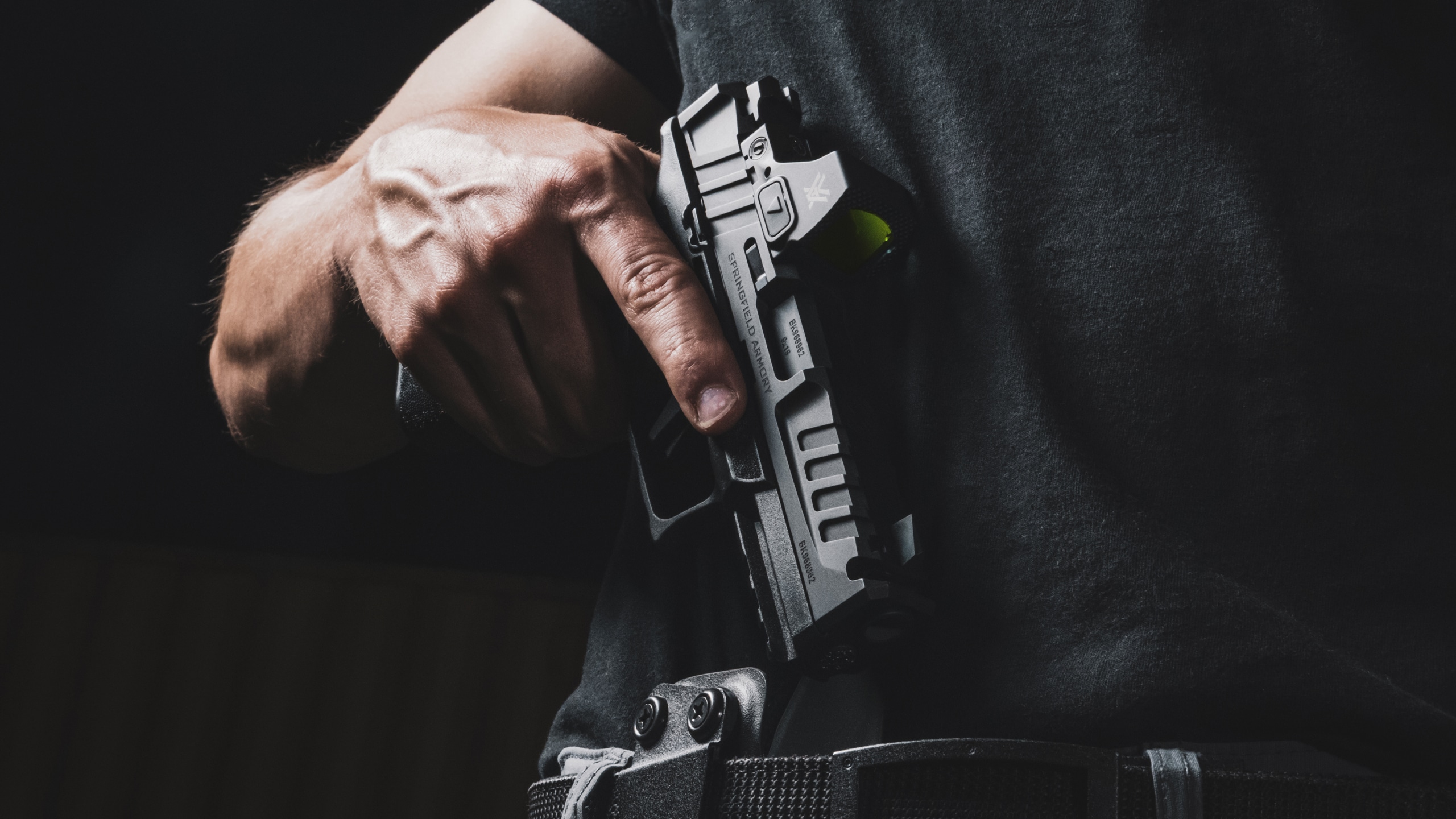Soon after leaving public office, the 26th President of the United States Theodore Roosevelt (1901-1909) delivered a world-famous speech in France, a part of which later became one of his most often quoted. Referred to as “The Man in the Arena,” it provided insight into the perspective of combatants who perform well under pressure.
“It is not the critic who counts; not the man who points out how the strong man stumbles, or where the doer of deeds could have done them better. The credit belongs to the man who is actually in the arena, whose face is marred by dust and sweat and blood; who strives valiantly; who errs, who comes up short again and again, because there is no effort without error and shortcoming; but who does actually strive to do the deeds; who knows great enthusiasms, the great devotions; who spends himself in a worthy cause; who at the best knows in the end the triumph of high achievement, and who at the worst, if he fails, at least fails while daring greatly, so that his place shall never be with those cold and timid souls who neither know victory nor defeat.”
What Roosevelt so eloquently shed light upon was the depth of human will, self-determination, and mental fortitude it takes to perform under extreme duress. What was true at the turn of the 20th century and later proven by the belligerents of both world wars, is true to this very day, that only the strong survive.

When Wyatt Earp was asked about winning gunfights, he attributed his success to, “Going into action with the greatest speed which a man’s muscles are capable, but mentally unflustered.” Given the critical importance of staying cool under pressure, it is no secret that the likes of war fighters and law enforcement professionals think clearer and perform better in violent physical altercations.
Back in the day, the term “steely-eyed gunfighter” was attributed to those gunslingers who possessed both the physical skills and mental strength needed to ply their trade. Physical prowess, although certainly a contributing factor, must be preceded by an unyielding and pervasive mental fortitude afforded only to those possessing coolness of mind referred to by legendary gunfighter Wyatt Earp as “mentally unflustered.”
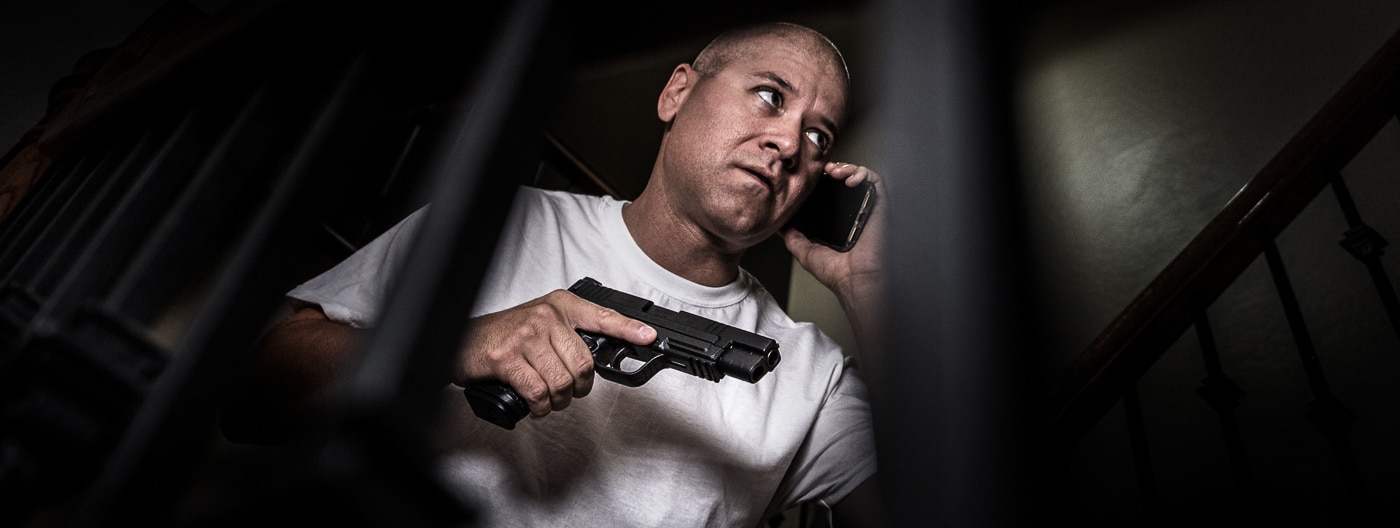
Fast forward to today, what three things can you do to be mentally unflustered should you find yourself needing to win a fight? Let’s begin with competency, consistency, and inoculation.
Competency
Think about going in for critical heart or eye surgery. Odds are that you would want a seasoned doctor that has about a thousand or so of these operations under his belt — preferably performing 20 of these a week for the past 20 years. When it comes to something that serious, you would place your trust in the most experienced physically and mentally competent practitioner. When it comes to surviving extreme physical violence, why wouldn’t you want that same competency to ensure your safety and that of those you care most about?

“Repetition is the mother of all skill” is a quote attributed to the hard skills masters of antiquity, dating back to ancient Rome. In meaningful training, the key to competency is nothing more than a countless number of precisely executed repetitions.
Practice makes permanent. As poor, or shoddy practice can create training scars, so does perfect practice (technique executed correctly) make permanent. The greater your competency the greater your confidence. The greater your confidence the lower your stress.
Consistency
The learning process is nothing more than differentiating “right” from “wrong.” The only way to truly learn is by making mistakes. Only by doing something wrong can you know its opposite — doing something right. For example, there are a hundred things you can do wrong when shooting that cause you to miss a target. However, there’s only one way not to miss a target and that is to align the muzzle with the target and break the shot without disturbing that alignment. Sounds simple until you try to do it. Apply even the slightest layer of complexity such as speed, distance, movement, cost for failure et al and you introduce factors that directly impact your consistency.
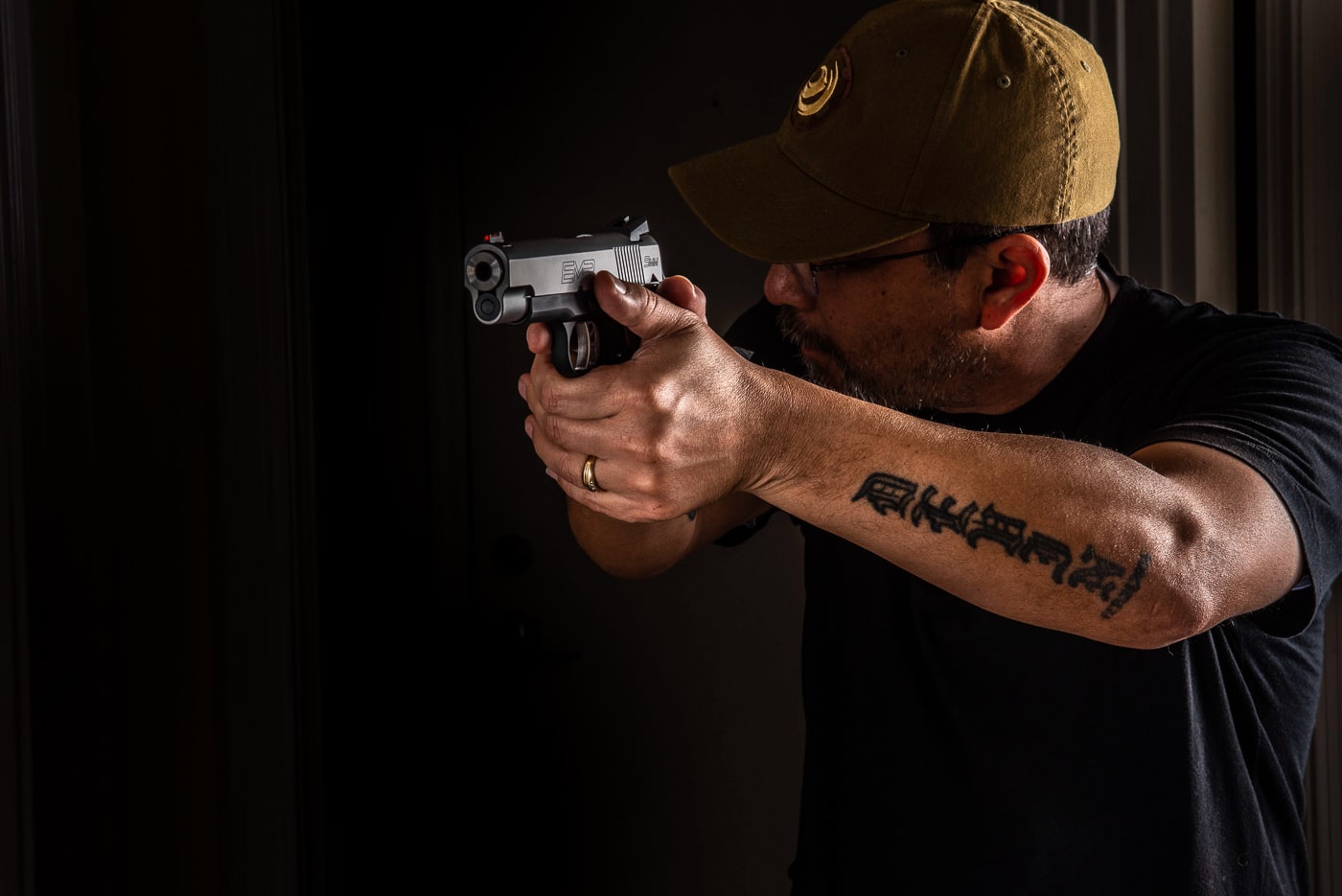
If you’re not making mistakes, then you’re not training for consistency.
Dirty Harry once said, “A man’s got to know his own limitations”. Do you know where is the very edge of your skills envelope? Do you work a specific technique repeatedly pushing the process until your wheels fall off? How far can you go physically and mentally before you step outside that skills envelope or involuntarily let up on that mental gas pedal? It takes the combination of both physical and mental consistency to perform well under duress. One will not work without the other.
The expert can get it right, but the professional cannot do it wrong.
Building consistency on a solid foundation of competence exponentially increases your confidence, which in turn further attenuates stress.
Inoculation
Place yourself in as close a situation as possible to real world physical violence by avoiding injury in balancing safety and reality of training. Such training methods as “force on force” employed by the military and law enforcement using dye marker cartridges like Simunitions (that can also introduce a pain element feedback to your training), Airsoft or digital electronic/video simulators (like fighter pilots use) that allow you to safely experience conditions similar to what you may experience in reality.
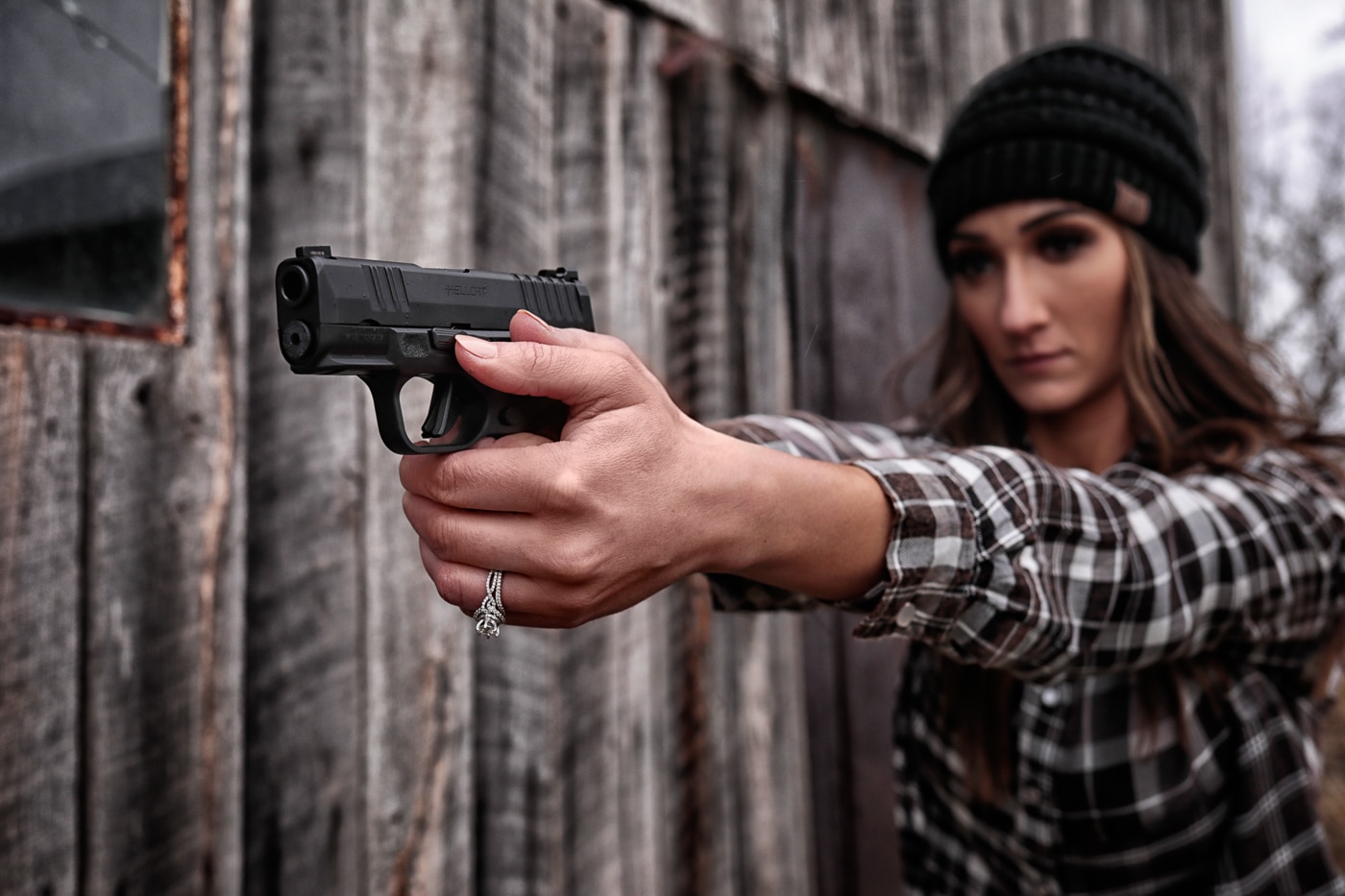
Being mentally inoculated is like hearing the same joke over and over again. The first time you hear a joke it may seem humorous but by the seventh time around it becomes an annoyance. The same applies to your exposure to physical violence via repeatedly placing yourself in similar conditions.
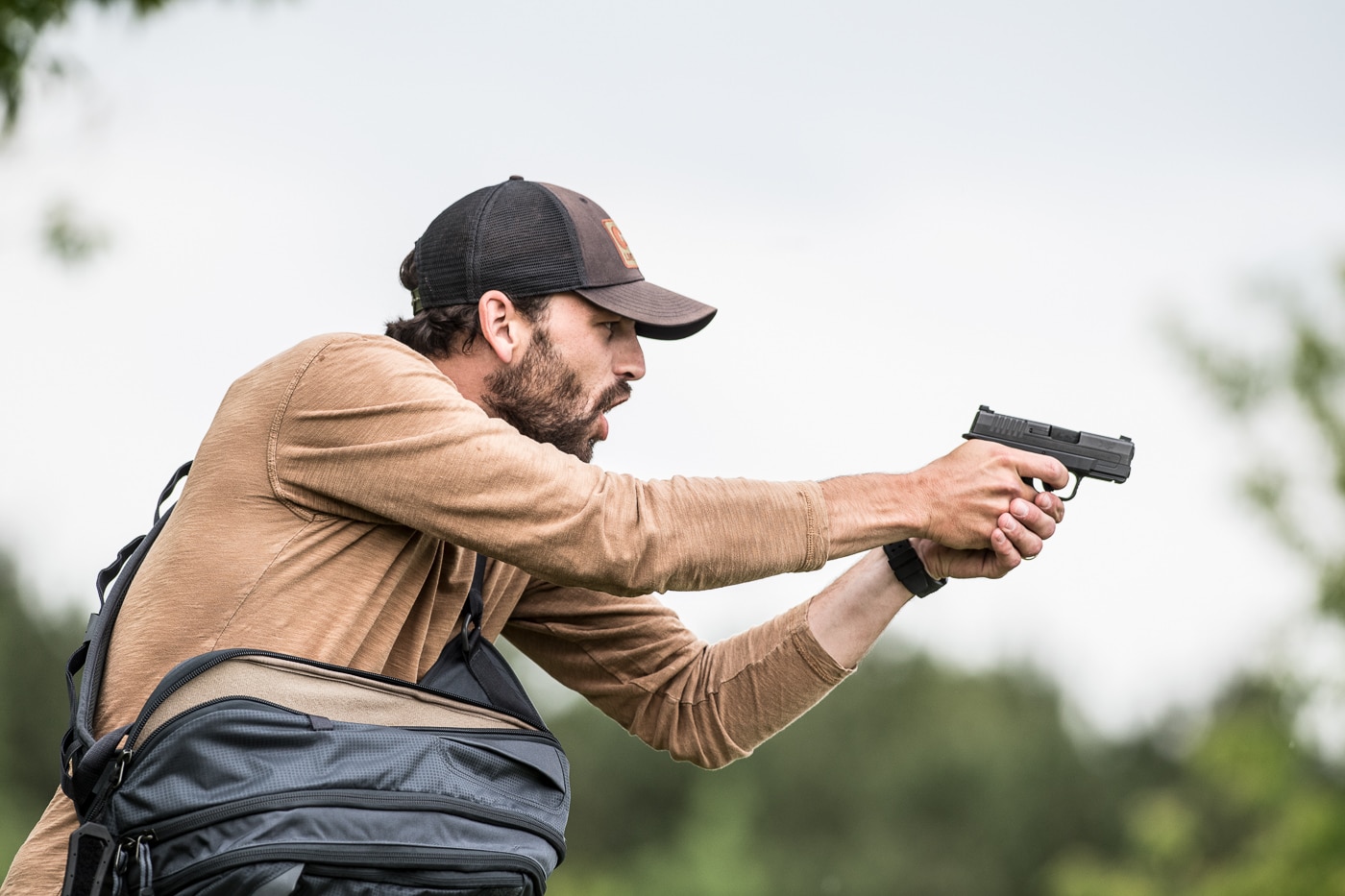
Along with any active threat come three conditions which cause the human mind to become flustered. These are a scenario that is new, unfamiliar and threatening. By the sheer number of repetitions in training and having made more mistakes than not, there’s nothing new. Any such newness is displaced by hard-earned competency. Pushing the edge of your skills envelope creates a new and expanded comfort zone of familiar ground where there is no longer anything unfamiliar. Inoculating your mind against threatening situations attenuates the tendency to become flustered.
Conclusion
Replacing new, unfamiliar, and threatening with competency, consistency, and inoculation are what allow you to go into action with the greatest speed which a man’s muscles are capable, but mentally unflustered.
Editor’s Note: Please be sure to check out The Armory Life Forum, where you can comment about our daily articles, as well as just talk guns and gear. Click the “Go To Forum Thread” link below to jump in and discuss this article and much more!


